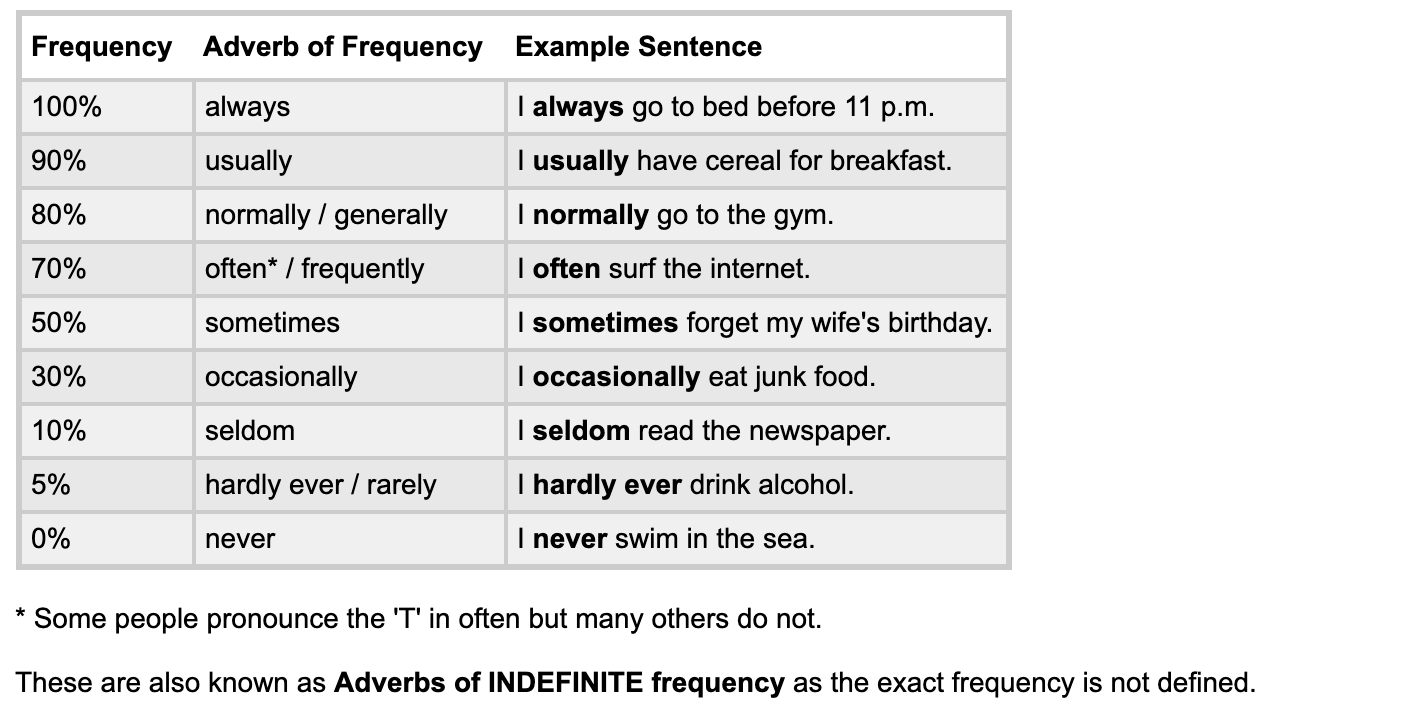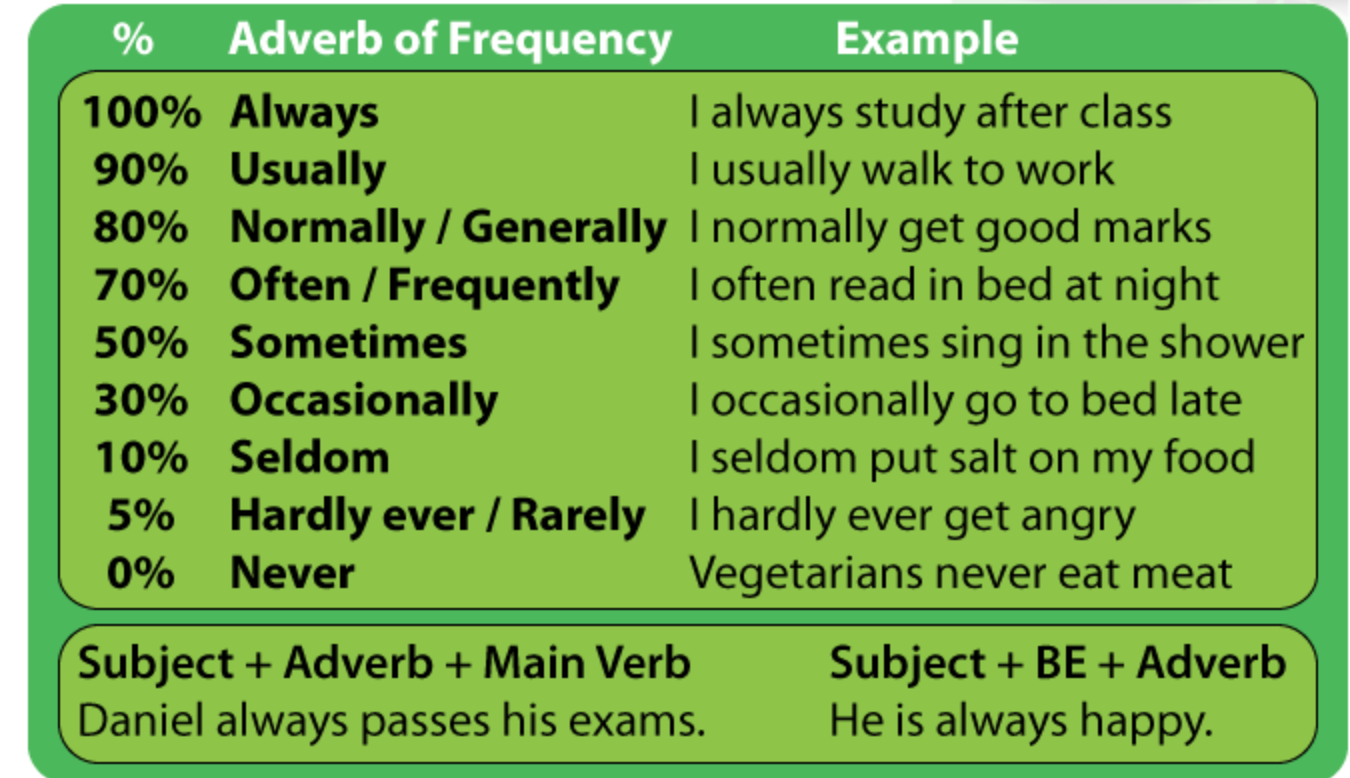AVVERBI DI FREQUENZA
Inserisci qui il tuo testo...
These are called adverbs of frequency and include:

The Position of the Adverb in a Sentence
An adverb of frequency goes before a main verb (except with To Be).
Subject + adverb + main verb
I always remember to do my homework.
He normally gets good marks in exams.
An adverb of frequency goes after the verb To Be.
Subject + to be + adverb
They are never pleased to see me.
She isn't usually bad tempered.
When we use an auxiliary verb (have, will, must, might, could, would, can, etc.), the adverb is placed between the auxiliary and the main verb. This is also true for to be.
Subject + auxiliary + adverb + main verb
She can sometimes beat me in a race.
I would hardly ever be unkind to someone.
They might never see each other again.
They could occasionally be heard laughing.
We can also use the following adverbs at the start of a sentence:
Usually, normally, often, frequently, sometimes, occasionally
- Occasionally, I like to eat Thai food.
BUT we cannot use the following at the beginning of a sentence:
Always, seldom, rarely, hardly, ever, never.
We use hardly ever and never with positive, not negative verbs:
- She hardly ever comes to my parties.
- They never say 'thank you'.
We use ever in questions and negative statements:
- Have you ever been to New Zealand?
- I haven't ever been to Switzerland. (The same as 'I have never been Switzerland').

Adverbs of Definite Frequency
We can also use the following expressions when we want to be more specific about the frequency:
- every day
- once a month
- twice a year
- four times a day
- every other week
- daily
- monthly
These are also known as Adverbs of DEFINITE frequency as the exact frequency is specified.
See our video for details about these types of Adverbs: